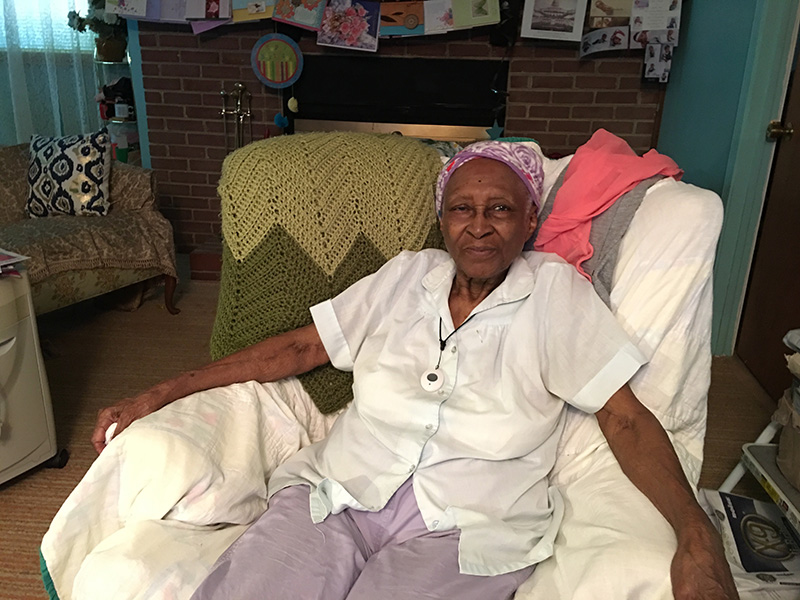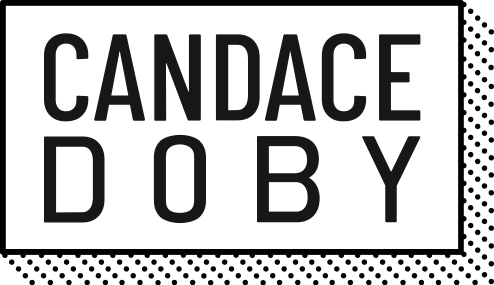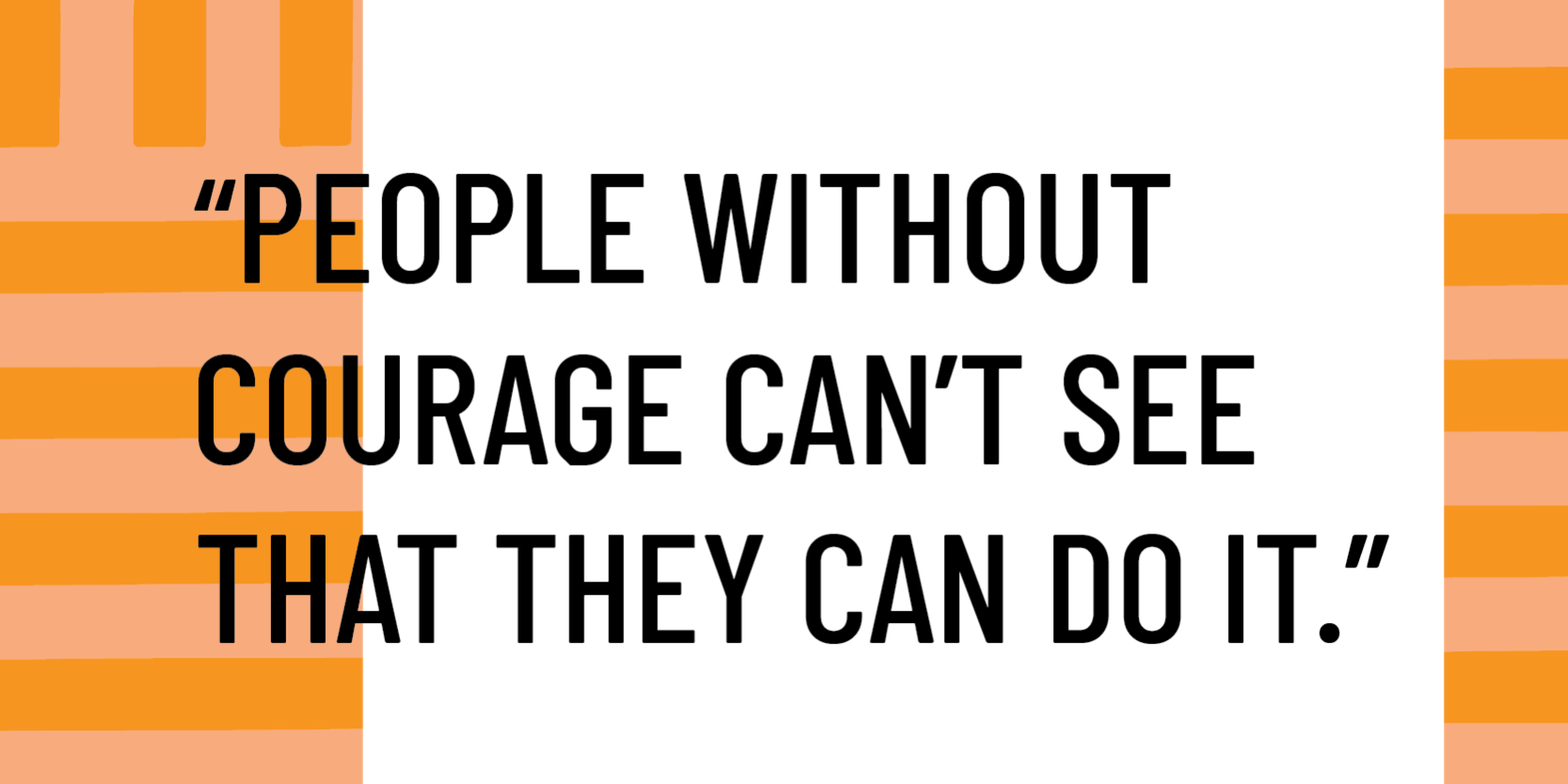I sat on the edge of a plastic covered antique couch across from my great aunt. She slouched in a wingback chair that she obviously cared much less about preserving. It was a favorite spot in her living room, which had looked precisely the same for the past few decades except for the 42” flat screen TV both of us were watching. The Chew had gone to commercial break, so I decided to ask her a question. But not just any question—the question I frequently dropped on unsuspecting subjects at appropriately random moments.
“Aunt Kathleen, what is courage?”
She slowly leaned forward in the worn chair to decrease the space between her ears and my mouth, and she repeated the question to ensure she heard me correctly. Upon my confirmation, Aunt Kathleen reared back with an annoyed, confused look across her face. The question, which required thought energy and concentration, was obviously not something the 92 year old wanted to consider in the middle of her favorite show or ever. But my fixed stare and eager smile illustrated my anxiousness to hear her answer, and I could see that she didn’t want to disappoint her sweet niece who came to sit with her. If her eyes were any indication of the activity in her brain, she was searching for an answer. We sat quietly for a few moments until she broke the silence with a few disjointed words, and when she realized they didn’t make sense, she returned to searching. This was hard for her, and I began feeling embarrassed for asking. She couldn’t easily define courage.
But quite frankly, neither could ancient philosophers, social scientists, nor authors, though courage is widely recognized as an important virtue. Aristotle went as far as saying that “courage is the first of human virtues because it makes all others possible.”
So, it was not unusual that my aunt had difficulty expressing the complex construct. And when she finally found her words several moments later, it made perfect sense that she described courage in terms of what it is not, rather than what it is.
People without courage can’t see that they can do it.
The slight smile on her face afterwards suggested that she was pleased with her answer. I was too.

COURAGE AND SELF-CONFIDENCE
She had called out one of the most important components of courage: self-confidence. Several researchers, including Nelson Goud, Alizabeth Jetter, and Daniel Putman, found that confidence in one’s abilities was the major determining factor in how a person responded to fear, how much effort a person would exert and how long he or she would persevere in the face of challenges. Confidence gives a person a sense of control in the presence of fear and can help reduce it.
But before a person can be confident in her abilities, she must first know her abilities. Therefore self-knowledge is a prerequisite of self-confidence. Daniel Putman said, “We need to know when to stand up and when to flee, when to fight and when to surrender. This is a function … of knowing our own skills and abilities.” Appropriate confidence is a form of self-knowledge individuals can rely on.
FOUR WAYS TO BUILD SELF-CONFIDENCE
So, then, how can the people my aunt was talking about—people who “can’t see that they can do it”—build up their self-confidence and successfully conjure courage when challenges arise?
The Chew was back, so I couldn’t dare ask my aunt her thoughts. Luckily, research offers four suggestions.
Remind yourself of your strengths. There is an interesting law of emotion called hedonic asymmetry, which reveals that people do not process positive and negative information equally. Researcher Cliffard Nass pointed out in his book, “The Man Who Lied To His Computer,” that negative is more “noticeable, consequential and extreme in every respect as compared to positive.” Psychologist Nico Frijda noted that positive emotions always fade overtime—not matter how much love was created, money was earned or drugs were consumed. Keeping this law in mind, it isn’t difficult to see how weaknesses may get more of our attention and memory than strengths. Strengths can easily fade from awareness, so it’s important to constantly remind ourselves of them so that we can call upon them in challenging times.
Engage in risk-fitness. Can you train your way to confidence and courage? Kind of. Taking repeated and gradual risks helps habituate a person to fear and make it manageable. Think about a weight-lifting exercise like squats. The movement may feel awkward at first. The pain may be close to unbearable initially. However, the more you engage in the activity, the better your body acclimates. But that doesn’t mean the pain goes away. It means your body begins to know what to expect and accepts the pain as part of the process. Risk fitness works the same way. Start by taking small risks, in which the potential lost is minimal. Then, steadily increase the reps and weight. Building on successful attempts to face adversity and fear helps nurture courage.
Model. Observing how someone responds to a situation that you may later encounter could increase your propensity to respond in a similar way. So, according to researcher Nelson Goud, courage is contagious.
Hang around encouraging people. Psychologist Albert Bandura revealed through research that confidence can be influenced by verbal persuasion. Trust is a main portal through which people can be persuaded. So, surround yourself with trustworthy people—people who are familiar and/or similar to you, and listen to their encouraging words.
*****
The Chew had gone off, and I think Aunt Kathleen had had enough of me for that day. So, I peeled my legs away from the plastic couch cover, walked to the door and kissed my auntie good-bye.







